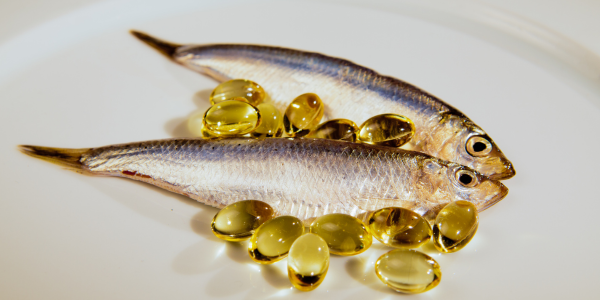Collagen is one of the most popular supplements on the health market today, with many being endorsed by celebrities and the beauty industry. For many of us, collagen supplements are simply known as anti-ageing youth-giving molecules.
It is important to stress that collagen, whilst an excellent supplement for anti-ageing, has an incredibly vast amount of health benefits for the human body and is a recommended supplement for anyone in their 30s and older, including all genders.
Collagen makes up 30% of the total protein in our body and is responsible for the structures that make up the human body, from head to toe1.
Collagen is found in abundance in hair, skin nails, our musculoskeletal system, our intestinal lining and blood vessels. It is quite literally scaffolding for the human body and helps connect the various systems to each other through its ability to build and support physical networks.
Sadly, our own collagen stores start to decline from our 30s onwards, making supplemental alternatives a must have.
Whilst we can obtain collagen through our diet (predominantly animal based dietary intake) we require a lot of collagen as it is such an abundant and important protein. Supplementation allows us to gain a concentrated amount of collagen in an absorbable form.
The human body stores and uses 18 different types of collagen for its various functions. Out of all of those varying collagen types, up to 80-90% of human collagen is type 1, 2 & 3 collagen.
This is important to remember as choosing the right type of collagen supplementation (to include types 1, 2 and/or 3 collagen) is required to give you the most bang for your buck when it comes to health benefits.
To summarise the three main types of collagen and their health benefits:
Type 1 collagen – is the most abundant collagen in the human body and is found in tendons, skin, ligaments, bones and cornea.
Type 2 collagen – is mainly found in cartilage2.
Type 3 collagen – is mainly found in the skin, cartilage and lining of the intestines, lungs & blood vessels3.
How is Marine & Bovine Collagen Extracted?
Peptides are extracted from the collagen sourced from fish and cows, which is then hydrolysed and dried into powder form for human consumption. As collagen is a large molecule, most collagen supplementation is either provided in capsule or powder form.
Bovine collagen is most commonly extracted from cow skin4 and marine collagen is more commonly extracted from the skin, scales and/or bones of fish5.
Marine collagen can be sourced from a wide variety of fish with pollock, cod and haddock being the most popular choices as they contain higher quantities of collagen6.
Benefits of Marine Collagen
One of the best researched health benefits of marine collagen on human health is its benefits for skin health.
Studies have shown that marine collagen can be a powerful anti-ageing tool, lowering oxidative stress in skin cells through its potent anti-inflammatory properties. It is also high in type 1 collagen, which is found in abundance in our skin, hair and nails7.
Marine collagen has also shown clinical benefits for skin wound healing and bone regeneration, which declines as we age8.
A randomised, triple-blind, placebo-controlled study taken across 12 weeks found that the female participants aged between 45-60 saw a significant (35%) reduction in wrinkles and improved skin appearance after supplementing with marine collagen9.
Marine collagen has also shown proven benefits for bone and ligament health, making it a must have supplement, which can be used as a supportive tool for conditions like osteoporosis and anyone looking to support bone preservation.
Whilst marine collagen is best known for its anti-ageing effects, it has also been shown to help support gut health by repairing the gut lining and improve sleep. Glycerine, which is an amino acid found in marine collagen being shown to regulate body temperature, making it a great all-rounder supplement for menopausal women.
Marine collagen is also the preferred choice if you are vegetarian. As bovine collagen is extracted from cows, fish collagen can provide the health benefits that collagen provides without compromising on your dietary choices.
Benefits of Bovine Collagen
Bovine (cow) collagen is abundant in types 1 & 3 collagen, making it potentially a preferred choice if your main health focus is joint and bone health. Whilst studies show that marine collagen also improves bone and ligament health, bovine collagen is thought to be higher in type 3 collagen, which is found in cartilage.
As bovine collagen is also high in type 1 collagen, it does contain many of the skin loving benefits that marine collagen contains.
A double-blind placebo study in 66 women aged 35-55 were given 2.5g bovine collagen peptides across 12 weeks. The control group noticed improved skin elasticity, less wrinkles, and skin hydration was noticeably improved10.
The Royal Osteoporosis Society published research on the benefits of bovine collagen for increased bone density, and a reduction in bone loss. The organisation saw bovine collagen as a potential therapeutic consideration for those at risk of osteoporosis11.
Which Type of Collagen is Better Absorbed?
Many supplements on the market (including our collagen complex) have been hydrolysed for better absorption.

Collagen Complex
Collagen is a large molecule, meaning that it needs to be broken down into peptide form aka hydrolysed in order for our digestive tract to absorb and carry it via the bloodstream to carry out its various functions.
If you are choosing between various collagen supplements, always check for the words ‘peptides’ or ‘hydrolysed’ when reading the label for better absorption.
However, studies show that marine collagen peptides are smaller than bovine, making marine collagen more bioavailable, aka better absorbed by the body12.
Another consideration when looking at absorption is the fact that fish is a common allergen. If you are intolerant or have an allergy to fish, then it is highly recommended to opt for bovine collagen.
Is Marine or Bovine Collagen more Environmentally Friendly?
There is a much stronger argument for choosing marine collagen if your decision is heavily based on environmental impact.
The manufacturing process of marine collagen is far more environmentally friendly than bovine. Firstly, cows have been shown to have one of the largest carbon footprints of all agricultural contributors to greenhouse gas emissions.
Furthermore, every year the fish industry produces discarded byproducts including bones, skin, fins, guts etc which account for up to 80% of total waste. Collagen is found in abundance in those discarded components, with collagen extraction in discarded fish parts leading to far less waste13.
So, Should you Choose Marine or Bovine Collagen?
To summarise, it truly depends on your unique health goals, needs and preferences.
If you are looking to supplement collagen as an anti-ageing skin treatment, then marine collagen may be a great option for you. If you're looking for far wider health benefits including tendon and ligament support, whilst marine collagen does offer those benefits, bovine collagen does contain more type 3 collagen – making it the preferred option for you.
Many people also combine collagen supplementation, with a 1:1 ratio of marine and bovine collagen to get the maximum results in terms of meeting all health needs.
The decision also depends on other considerations discussed like compatibility, allergens, dietary preferences and environmental impact.





















